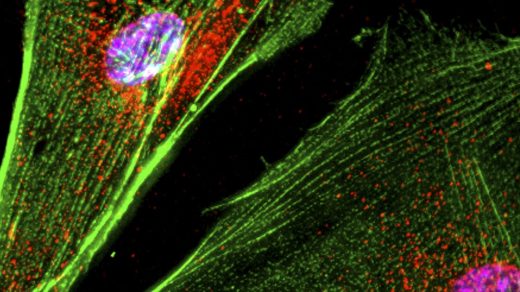
The findings of a new study has brought good news to a field of medical science which can benefit 10 million people across the globe. We are talking about Parkinson’s disease, the world’s fastest growing neurodegenerative disorder.
The study has been published in Nature Communications.
A team of researchers, led by scientists at University College London (UCL) and University Medical Center Goettingen, Germany, have developed a simple blood test that uses artificial intelligence (AI) to predict Parkinson’s up to seven years before the onset of symptoms.
“Currently, people with Parkinson’s are treated with dopamine replacement therapy after they have already developed symptoms, such as tremor, slowness of movement and gait, and memory problems. But researchers believe that early prediction and diagnosis would be valuable for finding treatments that could slow or stop Parkinson’s by protecting the dopamine producing brain cells,” UCL has said in a press release.
To determine Parkinson’s disease, the researchers found that when a branch of AI called machine learning, analysed a panel of eight blood based biomarkers whose concentrations are altered in patients with Parkinson’s, it could provide a diagnosis with 100% accuracy.
72 patients who had Rapid Eye Movement Behaviour Disorder (iRBD) were studied for the purpose. 75-80% of these people with iRBD go on to develop synucleinopathy (a type of brain disorder caused by the abnormal buildup of a protein called alpha-synuclein in brain cells) – including Parkinson’s. “When the machine learning tool analysed the blood of these patients it identified that 79% of the iRBD patients had the same profile as someone with Parkinson’s,” the researchers have said.
Parkinson’s disease is a progressive neurodegenerative disorder that primarily affects movement control. It occurs due to the degeneration of dopamine-producing neurons in the substantia nigra, a region of the brain crucial for regulating movement. Dopamine is a neurotransmitter that facilitates smooth, coordinated muscle movements. As these neurons deteriorate, dopamine levels decrease, leading to the motor symptoms characteristic of Parkinson’s disease.
The main symptoms of Parkinson’s disease include tremors, rigidity, bradykinesia (slowness of movement), and postural instability. Non-motor symptoms, such as cognitive impairment, mood disorders, sleep disturbances, and autonomic dysfunction, can also occur. The progression and severity of symptoms vary among individuals.
Age is a significant risk factor, with most cases occurring after age 60, although early-onset Parkinson’s can occur in younger individuals.
Currently, there is no cure for Parkinson’s disease. Treatment focuses on managing symptoms, primarily through medications that increase dopamine levels or mimic its action, such as Levodopa. Physical therapy, occupational therapy, and lifestyle changes can also help manage symptoms. Advanced treatments, including deep brain stimulation, are available for certain patients. Research continues to seek better treatments and potential cures for this debilitating disease.
Restless nights? Uncover the secrets to a restful sleep
This was shown first on: https://timesofindia.indiatimes.com/life-style/health-fitness/health-news/ai-based-blood-test-can-predict-parkinsons-seven-years-before-symptoms-finds-study/articleshow/111097738.cms


